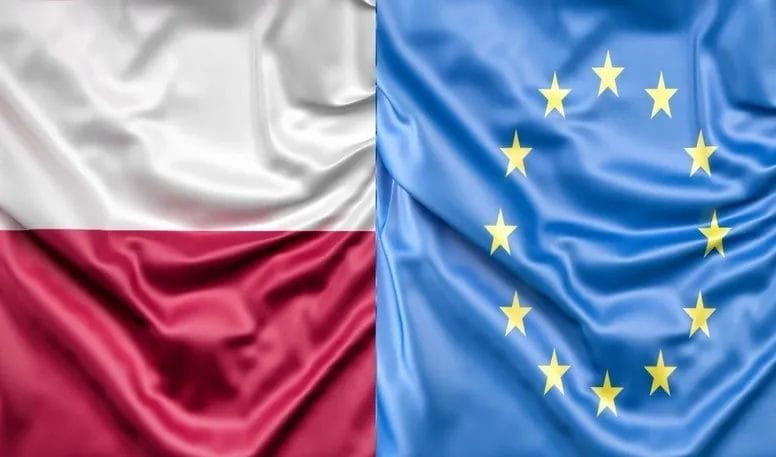
General elections took place in Poland on October 15th. The turnout was 74.4%, the largest since the country’s return to democracy in 1989. At the general elections in 1989, when the country refused Soviet rule, turnout was 63%. Since the exit pollscame in, it has appeared that the ruling Law and Justice (PiS) party, led by Jarosław Kaczyński, gas remained the largest party, but that it will be unable to form a governing coalition. Instead, the Civic Coalition led by Donald Tusk could be at the centre of a three-party pact to form a new government.
The official ballot announced by the National Electoral Commission confirmed the exit polls. PiS won 35.4% of votes, and 194 seats (down from the 43.6% of votes and 235 seats it received in the 2019 election). The Civic Platform (CO) received 30.7% of votes and 157 seats; the left-wing Lewica gathered 8.6% and 26; the Third Way (Trzecia Droga, a political alliance formed in April 2023 between Poland 2050 and Polish People’s Party, to provide an alternative to both the PiS and Civic Platform) reached 14.4% and 65 seats, and the nationalistic, right-wing Confederation got 7.2% and 18 seats. In the upper house, which maintains some limited power in the legislative process, the new winning coalition secured 66 votes, versus 34 that went to PiS.
Even if PiS were to coalesce with the Confederation, it could count at most on 212 seats, versus the 231 needed for a majority. On the other hand, the coalition between CO, Third Way and Left could reach a comfortable majority of 248 seats in the lower house (Sejm).
President Andrzej Duda, coming from PiS, called for the new parliament to convene on November 13th, for its first meeting. Following that, he will appoint the new PM. Duda recently declared that there are two credible candidates for the job: incumbent PM Mateusz Morawiecki, and CO leader Donald Tusk. Tusk has previously been PM during the period 2007–2014, before becoming EU Commission President between 2014 and 2019. In theory, Duda may ask Morawiecki to form a government, and wait for him to fail before asking Tusk to do the same; similar to what has happened in Spain recently, when King Felipe IV asked first Alberto Nunez Feijoo, the numerical winner of an election, and then incumbent PM Sanchez, the political winner, to form a government.
But this would be just a tactical move to show his allegiance to PiS’s leader Kaczyński. But that move could antagonize the new coalition, with which he will have to work anyway. In the background, there are the 2025 Presidential elections approaching: PiS’s chances of electing one of their potential candidates, including Morawiecki, impinge on the way Duda will behave and the choices he could make in the next few weeks. Tusk has gained the possibility of being re-appointed PM after being subject to all sorts of attacks during the electoral campaign, when his adversaries tried to depict him as a puppet in the hands of the Germans, the Americans, or – alternatively – the Russians: allegations that the general public clearly considered baseless.
If Tusk becomes Poland’s PM, he will have several issues to fix. On the domestic front, he will have to reduce his public deficit, which runs around 4% of GDP, while re-affirming the importance of military spending, which is around 3% of GDP (and well above the NATO-mandated 2%). On the international front, he will have to try to close the Article 7 procedure that the EU has opened against Poland for violation of the rule of law (given the PiS influence over the judiciary and the press, in particular over Poland’s state-owned TV channels), which has resulted in the freezing of EUR 75bn of EU funds, of which 25bn are in grants. On the Russia-Ukraine front, Tusk will have to reassure the European and American allies about Poland’s willingness to continue providing ammunitions and logistical support to Ukraine. In general, Tusk will have to rebuild all the relationships with Poland’s traditional allies that had gone sour after many years of PiS’s rule.
As we noted recently in the aftermath of the victory of Robert Fico in Slovakia, the Viségrad group is now more divided than ever, with Slovakia and Hungary still insisting on their populist, right-wing, nationalistic and pro-Russian positions, while Czechia and Poland have re-embraced a pro-European stance. But while Slovakia is a small country, Poland, with more than 40 million people, is the fifth largest country of the EU, after Germany, France, Italy and Spain. So, the fact that Poland has returned to a pro-European stance definitely revives the hopes of further integration at the EU level.